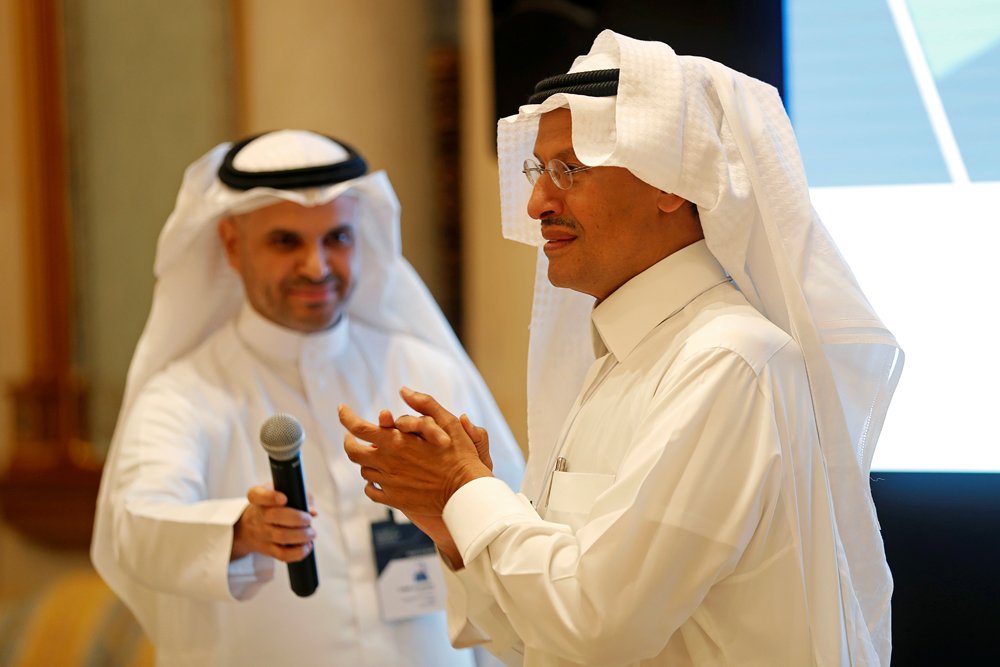
- ARAB NEWS
- 18 Jul 2025

The speech of Saudi Energy Minister Prince Abdulaziz bin Salman was one of the seminal moments at the Future Investment Initiative (FII). He addressed head-on the global challenge of climate change and Saudi Arabia’s role in addressing it. In doing so, he also delineated what looks likely to become an important pillar of Saudi Arabia’s G20 presidency next year.
The speech was about Saudi Arabia’s journey to find a balance between sustainability and economic growth. This is a conundrum the whole world faces if it wants to achieve ambitious climate change goals while still ensuring economic prosperity.
The Kingdom has the Middle East’s leading economy and is one of only two regional representatives on the G20. At the same time, Saudi Arabia is OPEC’s senior member, currently producing about 10 million barrels per day (bpd) of oil, with 267 billion barrels of oil reserves and more than 9 trillion cubic meters of gas reserves.
The minister introduced his thoughts on the circular carbon economy, which is a closed-loop system geared at establishing a balance of the carbon cycle. The framework aims at reducing, reusing and removing greenhouse gases.
Prince Abdulaziz emphasized the fast-growing role of renewables in the global energy mix, while acknowledging that fossil fuels still had an important part to play in sustaining the global economy. He acknowledged that the Kingdom, like most countries, was reorienting its energy mix to meet both the economic and environmental challenges.
The minister pointed out that the origins of the concept were not new to Saudi Arabia, which started to cease flaring gas in the 1980s, instead using it to fuel power and desalination plants. It also played a vital role in the establishment of the petrochemical industry in the country. The minister estimated that the productive use of gas had already reduced carbon dioxide emissions by a total of 2.8 gigatons.
Prince Abdulaziz stressed the importance of research and development to achieve the circular carbon economy. He also underlined the role of energy efficiency and conservation measures, listing what Saudi Arabia had achieved in the recent past. The emissions reductions of 57 percent from air conditioning stood out in particular. Going forward, he expects to reduce local energy consumption by 2 million bpd of oil equivalent by 2030.
The speech was important as it set Saudi Arabia up to play its role in the context of the global climate change debate and, as such, set the stage for constructive discussions at next year’s G20, when Saudi Arabia will assume its presidency.
It is vital that major energy producers take part in this debate, which is currently discussed in two spheres that barely interact. On the one hand there are the climate change advocates who discuss the issues with varied degrees of intensity, ranging from conferences and debates to global protest movements, such as the schoolchildren’s climate strikes and Extinction Rebellion protests. The young, in particular, are energized by climate activist Greta Thunberg. They have a point inasmuch as it is they who will inherit this world. Climate activism has become a significant global movement and has attracted the attention of many politicians. In many Organization for Economic Cooperation and Development countries, green credentials have become important for those aspiring to be elected.
On the other hand, there is industry, which provides jobs and where the imperative is economic progress. They are the realists who are concerned with the art of the possible.
The two sides’ discussions take place in separate bubbles that barely interact. One of the places where they do is the debate on sustainable finance, which is quickly becoming a major asset class in its own right, marrying sustainability with the profitability concerns of investors. If we want to ensure the welfare of the planet and economic prosperity at the same time, it is vital there is more interaction between those who want to achieve the important climate change goals and those who are the stewards of industry.
The G20 is a good place to get that consultative interaction going and the concept of the circular carbon economy is a good framework to get us started on the journey.
Cornelia Meyer is a business consultant, macroeconomist and energy expert. Twitter: @MeyerResources